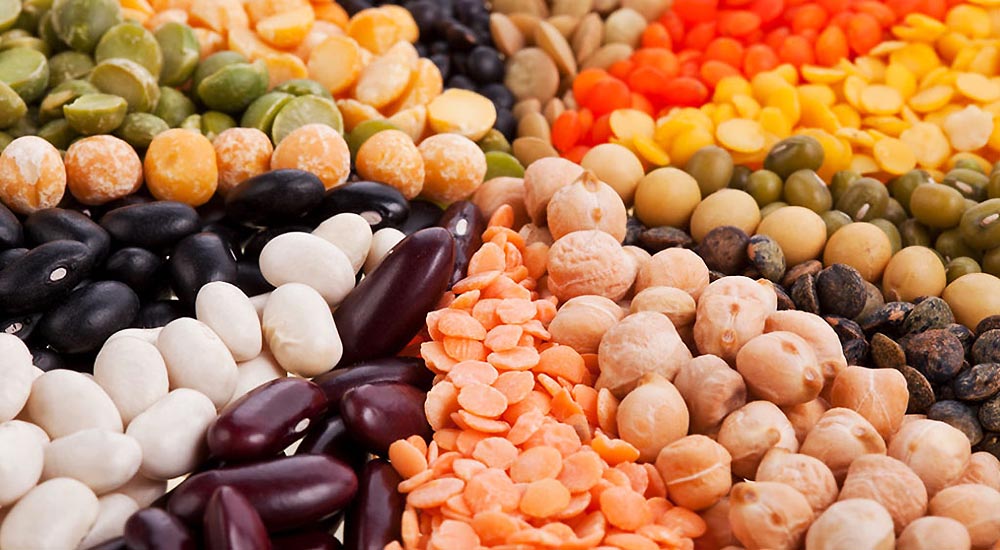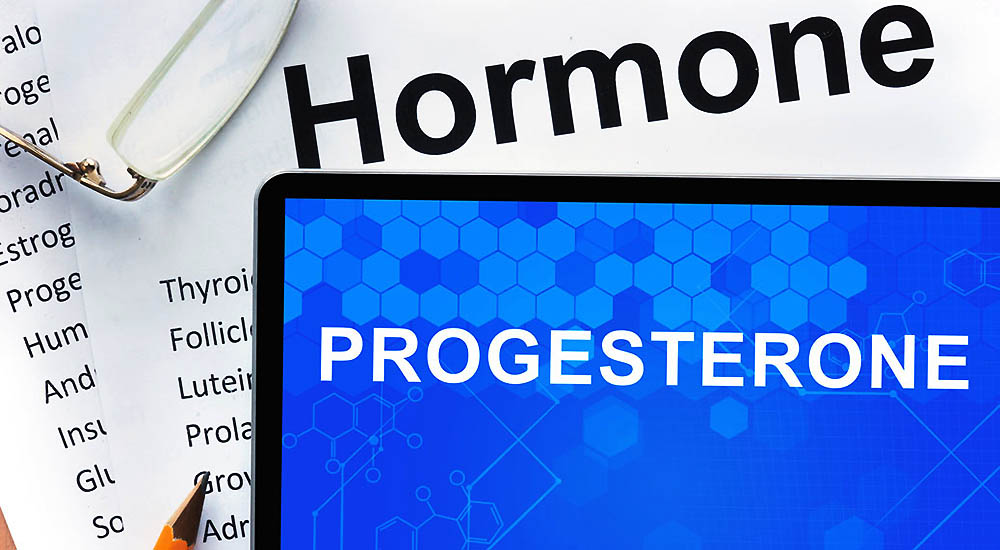Breakthrough Cancer Fighting Food

Can you eat something to lessen your cancer risk?
Cancer is scary. There’s no argument that it’s one of the things people dread most, and with good reason.
What if there was a food you could include in your diet each day to reduce your risk?
What if there was a food that could CHANGE cancer cells into normal cells?
Are you thinking, shouldn’t I have heard of this before? Considering the abundant research supporting this data, it seems like everyone should know it.
Substances found in plants, including beans, chickpeas, split peas, and lentils, have a beneficial effect on a variety of cancers.
It is nothing new in the arena of cancer research that a high plant-based diet, and one low in animal protein, is the safest dietary ratio for cancer prevention.
What food should you eat at every meal?
The American Institute for Cancer Research (AICR) completed a forensic investigation involving 500,000 studies.
Nine research teams hailing from around the world came to a consensus report that was then reviewed by twenty of the top cancer researchers on the planet.
One of their cancer-prevention recommendations was: eat legumes (all varieties of beans, split peas, chickpeas and lentils) with every meal or 3 servings per day.
In other words, if you don’t want legumes for breakfast, you can eat them for a snack or double up with lunch or dinner.
Good News: Effi Foods just released delicious grain-free granola with zero sugar made with chickpea flour. Now you CAN eat your legumes for breakfast… or dessert!
What are phytates?
Phytates (also known as phytic acid), are antioxidant compounds found in plant foods, including legumes, nuts, seeds, and whole grains.
The phytates found in many of these plant foods may very well be the protective compound that decreases cancer risk.
Phytates are often accused of being “anti-nutrients”, but they have a highly influential effect on cancer prevention. You wonder why anyone would encourage you to avoid these foods.
How do you reduce your risk of colon cancer?
Research into colon cancer found Uganda to have the lowest rates around the world. In fact, most hospitals had never seen a single case of the disease. Ugandans have a diet centered around plant foods that are high in fiber and phytates.
A very large study of Seventh-Day Adventists here in California seemed to prove the point. When the population was evaluated, an excess risk of colon cancer was found in those consuming both red and white meat. In fact:
The risk of colon cancer was 2x for those consuming red meat.
The risk was 3x for those eating chicken and fish.
A reduction of risk was deemed to occur in two ways:
- Eat less meat
- Eat more beans, a source of phytates.
Do you have to be 100% plant-based?
The good news was that it didn’t require an individual to go 100% plant-based to decrease their risk, but rather to focus on the ratio of plant to meat consumption.
The difference between a high-vegetable/low meat diet vs. high-meat/low vegetable diet?
The risk ratio for colon cancer was 8 times greater in the high meat/low vegetable group.
Can cancer cells be rehabilitated?
When a criminal is sent to jail, the outcome everyone is hoping for is rehabilitation. A criminal walks into jail and a reformed, upstanding citizen walks out; that’s the goal.
What about cancer cells? They too are criminals; evil cells that cause destruction and death. Can they be rehabilitated?
High phytate diet = Low cancer incidence
Many studies show a lower incidence of cancer in populations consuming high plant-based diets.
Vegetarians, as an example, have close to double the daily intake of phytates as compared to those eating a combination of plant and animal foods.
Population studies where a strong amount of phytate-containing foods are consumed not surprisingly show a lower incidence of cancer.
Do Americans eat phytates?
Grains are typically consumed by Americans, but beans, nuts, and seeds aren’t a large part of our Standard American Diet. And the grains Americans do eat are highly processed, not whole.
The typical American does not eat a diet robust in phytates.
Phytates are protective against many degenerative diseases
Phytates protect you from the major killers – stroke, type 2 diabetes, and high blood pressure, along with common conditions such as depression, kidney stone formation, and cavities.
How do phytates fight cancer?
While the list of diseases phytates are protective against are many, its anticancer benefit is considered its best attribute.
The anticancer activity comes from a compound known as IP6 or inositol hexaphosphate.
How do phytates protect you from cancer?
Phytates are absorbed quickly from the digestive tract and taken up by cancer cells. It’s good that cancer cells uptake them because phytates in turn inhibit the growth of the cancer cells.
The phytates are like a Trojan Horse – they are allowed to come “in” to the cancer cell, but once inside they cause its destruction.
What types of cancers have phytates inhibited?
All cancer cell lines tested have been inhibited after taking up phytates.
This includes:
- leukemia cells,
- colon cancer cells,
- estrogen receptor-positive and negative breast cancer cells,
- cervical cancer,
- liver cancer,
- pancreatic,
- prostate,
- muscle and
- melanoma cancer cells.
Yet, normal cells are not affected.
What is the best outcome one could ask for in a cancer treatment? Annihilation of cancer cells with no negative effects on normal cells. Phytates achieve this task.
Maybe you’re thinking, “I should have heard of this before?” I agree.
How do phytates accomplish their miraculous anti-cancer feats?
It turns out phytates excel in all the areas we know are required to keep a body healthy and cancer-free.
- strong antioxidant activity,
- anti-inflammatory,
- boost immune-enhancing activities (increase natural killer cell activity)
- assist in detoxification
- prevent cancer cells from developing new blood cells while strangling their existing blood supply.
If phytates acted on the body in just one of these ways they’d be highly beneficial, but they appear to “hit” cancer cells in a multitude of ways that directly inhibit their growth.
If phytates were a drug, people would pay a lot to get them
Phytates rehabilitate cancer cells
The icing on the cake of phytates in the fact that they seem to enhance differentiation. Meaning, cancer cells can literally “change their spots” in the presence of phytates and start acting like normal cells.
I’m going to repeat that: cancer cells, in the presence of phytates, can start acting like normal cells.
This has been seen in colon cancer cells. When the cells are in the presence of phytates they literally change structurally and behaviorally, back to normal cells.
A variety of cancers demonstrate this “miracle” including breast, leukemia, prostate, and muscle cancers.
Where’s the proof?
Is there only a single study demonstrating the ability of phytates to prevent and reverse cancer? No, there are dozens. I just choose a few from 2002 to 2016, but there are many many researchers across the globe who have proven everything I’ve written here. [See the reference section below for a list of studies.]
Eating legumes, nuts, seeds, and whole grains is pretty simple and inexpensive, wouldn’t you agree.
Why then don’t we know about the value of eating these foods?
Is cancer preventable or just “bad luck” as so many doctors try to tell you?
Luck favors the informed mind, so hopefully, this information is something you find valuable.
Want to learn more?
The subject of legumes is a broad one and while this blog focused on their anti-cancer abilities, they perform many healthy activities you may want to know about. I wrote a blog about it entitled: Are Legumes Healthy?
Are you at risk of cancer?
- Have you had cancer?
- Is cancer in your family?
- Are you just not feeling “right” and know you need to improve your health?
We can help.
Do you need help with your health?
We have the diagnostic and testing tools, the clinical experience, and a different medical approach to discovering the root cause of why you have the symptoms that are bothering you. As long as you are ready to make some dietary and lifestyle changes, we can help you. We will "hold your hand" through the changes, step by step, to make each step an easy one. We are located in Clearwater, FL, at 1000 S Ft Harrison, at the corner of Ft. Harrison Ave. and Magnolia St. There is plenty of parking space directly accessible from Ft Harrison. If it is not convenient for you to come to Root Cause Medical Clinic, we offer telehealth/telemedicine consultations to residents of certain states. Call us for details.
Contact us for a Consultation – Call 727-335-0400

Dr. Vikki Petersen DC. CCN
Founder of Root Cause Medical Clinic
Certified Functional Medicine Practitioner
Dr Vikki Petersen is a public speaker, author of two books, several eBooks and creates cutting edge content for her YouTube community. Dr Vikki is committed to bringing Root Cause Medicine and its unique approach to restoring health naturally to the world.
Ask a Doctor
Have a health concern you'd like to speak with a doctor about? Or just want clarity on a subject? Ask Us!
Featured Articles
Popular Stories
References:
- De Mejía EG, et al. Lectins as bioactive plant proteins: a potential in cancer treatment. Critical Reviews in Food Science and Nutrition. 2005;45(6):425-45.
- Zhu B, et al. Dietary legume consumption reduces the risk of colorectal cancer: evidence from a meta-analysis of cohort studies. Scientific Reports. 2015 Mar 5;5:8797.
- Aune D, et al. Whole-grain consumption and risk of cardiovascular disease, cancer, and all-cause and cause-specific mortality: a systematic review and dose-response meta-analysis of prospective studies. British Medical Journal. 2016 Jun 14;353:i2716.
- Vucenik, et al. Protection against cancer by dietary IP6 and inositol. Nutrition and Cancer 2006 55(2):109 – 125.
- Vucenik, et al. Anti-angiogenic activity of inositol hexaphosphate (IP6). Carcinogenesis 2004 25(11):2115 – 2123.
- K. M. et al. IP6 & inositol in cancer prevention and therapy. Current Cancer Therapy Reviews 2005 1(3):259 – 269.
- Kapral, et al. The effect of inositol hexaphosphate on the expression of selected metalloproteinases and their tissue inhibitors in IL-1B-stimulated colon cancer cells. International Journal of Colorectal Disease 2012 27(11):1419 – 1428.
- Lanza, et al. High dry bean intake and reduced risk of advanced colorectal adenoma recurrence among participants in the polyp prevention trial. The Journal of Nutrition. 2006 136(7):1896 – 1903.
- Shamsuddin. The anti-cancer function of phytic acid. International Journal of Food Science and Technology 2002 37(7):769 – 782.


